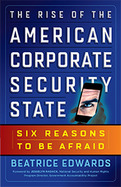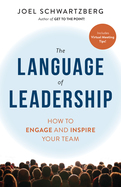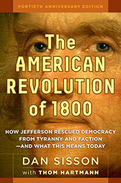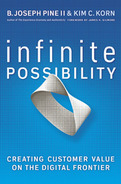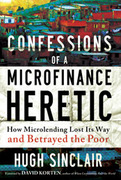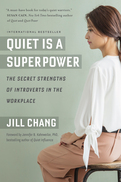Edward Snowden's dramatic NSA revelations are only the tip of an iceberg that threatens to sink the Constitution.
* Written by the executive director of one of the organizations representing Edward Snowden in the United States
* Warns that government-corporate "cooperation" in gathering intelligence has fueled an enormous erosion of our civil liberties
* Links the blurring of lines between government and business with the failure to prosecute those responsible for the 2008 economic collapse
Edward Snowden's dramatic NSA revelations are only the tip of an iceberg that threatens to sink the Constitution. As Beatrice Edwards reveals, a host of government agencies are rendering our Bill of Rights meaningless by heavy surveillance of average citizens, political persecution of dissenters, and the threat of indefinite detention now codified into law. Corporations assist and reap handsome profits as a result-70 percent of the $56.2 billion US intelligence budget is paid to private contractors.
As a result, we now live in a Corporate Security State where the government is more interested in safeguarding the health of the companies that serve it than the citizens who support it. How did we get here? And is there a way out?
Edwards lays out the steps intelligence agencies took in the wake of 9/11 to illegitimately extend their reach (and their budgets). Private corporations were only too eager to supply them with the latest surveillance technology and consumer data, essentially becoming an unofficial, and unaccountable, extension of those agencies. Edwards shows how the government has concealed its actions by greatly expanding both the classification of documents-the Obama administration has refused more Freedom of Information Act requests than Bush's-and the prosecution of whistleblowers, many of whom she has worked with personally.
Further, she exposes how the bogus claim of an imminent "cyber war" is being used to justify businesses spying on employees and customers, as well as government and business sharing their ill-gotten information. This is why the Justice Department isn't going after the corporations responsible for the financial collapse of 2008-as Edwards shows, all too often they're partners in crime.
But she offers a plan for fighting back-steps we can demand to restore transparency to government, keep private information private, and make democracy a reality once again.
Everything you communicate has the power to secure or sabotage your impression. But while you may be an empathic, visionary, responsive, inspiring, authentic, supportive, and humble leader, the lasting impact of those qualities hinges on your ability to communicate them effectively in words and expressions.
Drawing on his decades of experience as a presentation coach, executive speechwriter, and national champion public speaker, Joel Schwartzberg offers unique mindsets, actionable tactics, and diverse examples to help you leverage the most powerful leadership tool you have: your voice. Whether you're giving speeches, telling stories, sending emails, posting messages, recording videos, or running Zoom meetings, these are essential practices for establishing authority and engaging your audience.
The Language of Leadership will show you how to inspire, not merely inform, communicate with purpose and power, and sell—not just share—your most important ideas.
Most historians celebrate Jefferson's victory over Adams in 1800 as the beginning of the two-party system, but Jefferson would have been horrified by this interpretation. Drawing on the understanding of faction, revolution, and conspiracy reflected in the writings of the Founders, Sisson makes it clear that they, like Jefferson, envisioned essentially a nonparty state.
Jefferson believed his election was a peaceful revolution by the American people overturning an elitist faction that was stamping out cherished constitutional rights and trying to transform our young democracy into an authoritarian state. It was a transfer of power back to the people, not a change of parties. Sisson maintains Jefferson would regard our current two-party system as a repudiation of his theory of revolution and his earnest desire that the people as a whole, not any faction or clique, would triumph in government. The ideals of the American Revolution were in danger until this “Revolution of 1800,” to which we owe the preservation of many of our key rights.
With contributions by Thom Hartmann that bring out the book's contemporary relevance, this fortieth-anniversary edition contains new insights and reflections on how Jefferson's vision can help us in our own era of polarization, corruption, government overreach, and gridlock.
2011
A deeply personal story written by a microfinance insider whose decade in the industry turned him into a heretic. It reveals the shocking truth of the industry once hailed as the miraculous solution to world poverty, and profiles the few shining exceptions to industry-wide corruption.
- A deeply personal story written by a microfinance insider who was once tapped as an anonymous source for a New York Times exposé
- Reveals the shocking truth of the industry once hailed as the miraculous solution to world poverty
- Profiles the few shining exceptions to industry-wide corruption and offers solutions to clean up the rest
- Please click here for press release
Offering inspiring success stories, the microfinance industry depends on the faith of investors that small loans can transform the lives of the poor. But as Hugh Sinclair points out, very little solid evidence exists that microloans make a dent in long-term poverty. Evidence does exist for negligence, corruption, and methods that border on extortion. Part exposé, part memoir, and part financial detective story, this is the account of a one-time true believer whose decade in the industry turned him into a heretic.
Sinclair worked with several microfinance institutions and funds as he traveled from Mexico to Mongolia, with Nigeria, Holland, and Mozambique in between. He couldn't help but notice that even with a booming $70 billion industry on their side, the poor didn't seem any better off in practice. Exorbitant interest rates led borrowers into never-ending debt spirals, and aggressive collection practices resulted in cases of forced prostitution, child labor, suicide, and nationwide revolts against the microfinance community.
With characteristic intelligence and biting wit, Sinclair weaves a shocking tale of a system increasingly focused on maximizing profits. The situation worsened when large banks, attracted by the high repayment rates of overpriced loans, hijacked the sector and created a microfinance bubble. Sinclair details his discovery of several scandals, one of the most disturbing involving a large African Microfinance institution of questionable legality which charged interest rates in excess of 100% per year, and whose investors and supporters included some of the most celebrated leaders of the microfinance sector. Sinclair's objections were first met with silence, then threats and attempted bribery, a court case, and eventually led him to become a principle whistleblower in a sector that had lost its soul.
Microfinance can work-Sinclair describes moving experiences with several ethical and effective organizations and analyzes what made them different. But without the fundamental reforms that Sinclair recommends here, microfinance will remain an "investment opportunity" that will leave the poor with hollow promises and empty pockets.
- A deeply personal story written by a microfinance insider who was once tapped as an anonymous source for a New York Times expos
- Reveals the shocking truth of the industry once hailed as the miraculous solution to world poverty
- Profiles the few shining exceptions to industry-wide corruption and offers solutions to clean up the rest
- Please click here for press release
Offering inspiring success stories, the microfinance industry depends on the faith of investors that small loans can transform the lives of the poor. But as Hugh Sinclair points out, very little solid evidence exists that microloans make a dent in long-term poverty. Evidence does exist for negligence, corruption, and methods that border on extortion. Part expos, part memoir, and part financial detective story, this is the account of a one-time true believer whose decade in the industry turned him into a heretic.
Sinclair worked with several microfinance institutions and funds as he traveled from Mexico to Mongolia, with Nigeria, Holland, and Mozambique in between. He couldnt help but notice that even with a booming $70 billion industry on their side, the poor didnt seem any better off in practice. Exorbitant interest rates led borrowers into never-ending debt spirals, and aggressive collection practices resulted in cases of forced prostitution, child labor, suicide, and nationwide revolts against the microfinance community.
With characteristic intelligence and biting wit, Sinclair weaves a shocking tale of a system increasingly focused on maximizing profits. The situation worsened when large banks, attracted by the high repayment rates of overpriced loans, hijacked the sector and created a microfinance bubble. Sinclair details his discovery of several scandals, one of the most disturbing involving a large African Microfinance institution of questionable legality which charged interest rates in excess of 100% per year, and whose investors and supporters included some of the most celebrated leaders of the microfinance sector. Sinclairs objections were first met with silence, then threats and attempted bribery, a court case, and eventually led him to become a principle whistleblower in a sector that had lost its soul.
Microfinance can workSinclair describes moving experiences with several ethical and effective organizations and analyzes what made them different. But without the fundamental reforms that Sinclair recommends here, microfinance will remain an investment opportunity that will leave the poor with hollow promises and empty pockets.
—Susan Cain, New York Times bestselling author of Quiet and Quiet Power and cofounder of Quiet Revolution
How does a self-described "extreme introvert" thrive in a world where extroverts are rewarded and social institutions are set up in their favor? Using her extraordinary personal story as a "case study of one," author Jill Chang shows that introverts hold tremendous untapped potential for success. Chang describes how she succeeded internationally in fields that are filled with extroverts, including as an agent for Major League Baseball players, a manager of a team across more than twenty countries, and a leading figure in international philanthropy. Instead of changing herself to fit an extroverted mold, she learned to embrace her introversion, turning it from a disadvantage to the reason she was able to accomplish great goals and excel in tasks that her extroverted peers missed. She offers advice on the best jobs for introverts, overcoming the additional difficulties language and cultural barriers can present, thriving at social events and business presentations, leveraging the special leadership traits of introverts, and much more. Part memoir and part career guide, this book gives introverts the tools to understand how they can form relationships, advance in the career path, excel in cross-cultural workplaces, and navigate extroverted settings without compromising comfort or personality.


